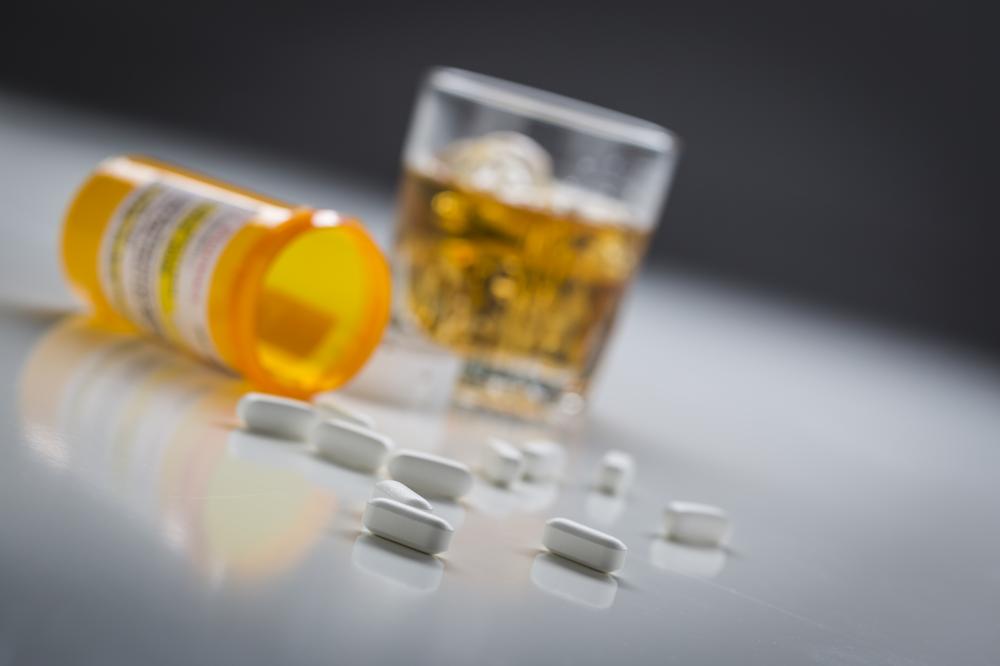
Exploring Minnesota Drug Rehab Options
The journey to recovery from substance addiction is a deeply personal experience that requires tailored solutions. Minnesota offers an array of drug rehab centers that provide diverse treatment programs suited to individual needs. Whether you’re seeking inpatient care, outpatient services, or specialized holistic therapies, Minnesota has options that cater to various preferences and requirements.
With the rising cases of substance abuse across the United States, Minnesota continues to expand its rehabilitation resources to provide effective treatment. This includes the integration of evidence-based therapies, innovative holistic approaches, and community support systems that aim to foster long-lasting recovery. Understanding what each rehab center offers can help in making informed decisions about treatment.
Personalized Care and Treatment
Cognitive Behavioral Therapy (CBT) and Dialectical Behavioral Therapy (DBT)
CBT and DBT stand as pillars in the rehabilitation process, offering structured ways to address the psychological aspects of addiction. These therapies work by helping individuals recognize and alter negative thoughts and behaviors. Minnesota Recovery centers emphasize these therapies to provide a solid foundation for mental health stability and overcoming addictive behaviors.
Group and Individual Therapy
Entering a Minnesota drug rehab facility means access to both group and individual therapy sessions. Group therapy fosters a sense of community and shared experiences, allowing patients to support each other on their recovery journey. Individual therapy, on the other hand, provides a private space to delve into personal challenges with a licensed therapist, ensuring that each session caters to the individual’s specific needs.
Family Support and Involvement
An often overlooked aspect of addiction recovery is the role of family support. Integrating family therapy into the treatment process not only aids the individual in recovery but also equips family members with the tools to provide ongoing support. Minnesota Recovery centers recognize the importance of this dynamic and offer family counseling as part of their comprehensive care plans.
Unique Programs and Services
Holistic Approaches to Rehabilitation
Holistic therapies play a significant role in Minnesota drug rehab programs by ensuring treatment addresses the whole person–mind, body, and spirit. This can include practices such as yoga, meditation, art therapy, and nutritional counseling. By incorporating these elements, Minnesota Recovery centers aim to cultivate a balanced lifestyle that reduces stress and promotes healing.
Detox and Residential Treatment
Detoxification is a crucial first step for many on the path to sobriety. Minnesota drug rehab facilities offer medically supervised detox programs to manage withdrawal symptoms safely. Following detox, options for residential treatment provide an immersive environment where patients can focus entirely on their recovery without outside distractions.
Partial Hospitalization and Intensive Outpatient Programs
For those who require a structured environment but have commitments that prevent them from undergoing inpatient treatment, partial hospitalization and intensive outpatient programs are available. These programs offer flexible yet intensive treatment sessions that allow individuals to continue with their daily lives while receiving the necessary support and counseling.
Assessing the Cost of Drug Rehab
Understanding Treatment Costs
One of the most common concerns about seeking treatment is the financial burden. In Minnesota, the cost of drug rehab can vary significantly depending on the type of facility and services offered. However, the state provides numerous options, from luxury facilities to those offering sliding-scale fees based on income, ensuring accessibility for all.
Insurance Coverage and Financial Assistance
Minnesota Recovery centers primarily accept a wide range of health insurance plans, easing the financial pressure on patients and their families. It’s essential to communicate with insurance providers to understand coverage details. Additionally, many centers offer financial aid, scholarships, or grants to assist those without adequate insurance.
Navigating the Rehabilitation Landscape
Licensing and Accreditation
When choosing a Minnesota drug rehab center, ensuring the facility is licensed and accredited by recognized bodies is crucial. Accreditation by organizations such as the Joint Commission or NAATP signifies adherence to high standards of care and ethical treatment practices.
Choosing the Right Facility
With numerous options available, selecting the right facility can be overwhelming. Consider factors like program types, location, cost, and the specific needs of the individual seeking treatment. It might be helpful to consult with professionals who can offer insights based on personal circumstances and treatment goals.
Building Community Support
- Peer Support and Mentoring
-
Experiencing the support of peers who understand the challenges of addiction can be transformative. Many Minnesota drug rehab programs offer peer mentoring and support groups that encourage accountability and provide encouragement throughout the recovery process.
- Long-term Aftercare and Relapse Prevention
-
Recovery doesn’t stop after completing a rehab program. Minnesota Recovery centers prioritize aftercare planning, offering resources and support for ongoing treatment, relapse prevention strategies, and community reintegration. Personal anecdotes from individuals who’ve found success through these programs highlight the importance of continuing care.
Overcoming Barriers to Recovery
Addressing Stigma and Misconceptions
Despite increased awareness, stigma around addiction persists, creating barriers for those seeking help. Organizations like Minnesota Recovery work to dismantle these misconceptions, advocating for understanding and acceptance of addiction as a complex but treatable disease.
Access to Services in Rural Areas
Access to quality rehab services in rural Minnesota can pose challenges due to distance and resource availability. Mobile treatment units and telehealth services are innovative solutions being employed to bridge the gap, ensuring that those in remote areas receive the support they need.
Community Engagement and Education
Public Awareness Campaigns
Increasing public awareness about substance use disorders is vital for preventing addiction and encouraging treatment. Minnesota engages in community outreach and education programs aimed at destigmatizing addiction and promoting the availability of local rehab resources.
Partnerships and Collaborations
Collaboration with local organizations, schools, and healthcare providers enhances the effectiveness of Minnesota drug rehab initiatives. By fostering partnerships, these programs can provide a unified approach that includes prevention, intervention, and ongoing support.

How much does rehab cost in MN?
The cost of rehab in Minnesota can vary greatly depending on the type of facility and level of care required. Some luxury rehab centers might charge upwards of several thousand dollars per month, providing a high-end experience with additional amenities. However, there are also several facilities that offer more affordable options, with sliding-scale fees based on income. Minnesota Recovery, for example, collaborates with clients to understand their financial needs, often accepting a wide range of insurance plans to help alleviate costs. It’s crucial to reach out to facilities directly to discuss specific pricing and what’s included in the treatment plan. Are there particular services or amenities you find essential in a treatment facility?
What is the Minnesota alternative model of addiction treatment?
The Minnesota alternative model is distinctive in its integration of holistic and evidence-based approaches to addiction treatment. It emphasizes not only the physical aspects of addiction but also addresses mental, emotional, and spiritual well-being. By incorporating methods like Cognitive Behavioral Therapy (CBT), Dialectical Behavioral Therapy (DBT), and holistic practices such as yoga and meditation, it aims to heal the whole person. Minnesota Recovery is a proponent of this model, tailoring their programs to fit individual needs and fostering a nurturing environment for recovery. This approach recognizes that sobriety is a multifaceted journey and seeks to provide support on all fronts. How do you feel about integrating holistic practices with traditional therapy in treatment?
How many days do you get in rehab?
The length of stay in a rehab facility can vary based on individual needs, the severity of the addiction, and the type of program selected. Programs can range from 28-day residential treatments to longer-term stays of 60 or 90 days. Some individuals might benefit from extended aftercare options or outpatient programs that allow them to integrate more gradually into everyday life. At Minnesota Recovery, the focus is on creating a comprehensive treatment plan that fits each person’s unique circumstances, which can mean adjusting the duration as needed to ensure the best outcomes. Have you considered how different program lengths might fit your personal or professional commitments?
Why are so many rehabs in Utah?
Utah has become a hub for rehabilitation centers due to its serene natural landscapes and relatively lower operational costs compared to other states. The tranquil environment is conducive to therapeutic healing, providing a peaceful backdrop for recovery. Additionally, the state’s progressive mental health policies and supportive community networks have created a fertile ground for such facilities. While Minnesota offers unique benefits tailored to its population, Utah’s appeal lies in its combination of nature, affordability, and a strong focus on integrative health practices. How important is the geographical setting to you when considering a rehab facility?
How does Minnesota Recovery ensure personalized care in treatment?
Minnesota Recovery places a strong emphasis on creating tailored treatment plans that address each client’s unique needs. This personalized approach is facilitated by a team of licensed therapists, psychiatrists, and addiction specialists who work collaboratively with individuals. By focusing on therapies such as CBT and DBT, group and individual therapy, family support, and holistic practices, they ensure that every aspect of a person’s recovery journey is supported. This commitment to customized care offers clients the best chance at long-term success. How do you see personalized treatment impacting recovery outcomes?
What role does community support play in recovery at Minnesota Recovery?
Minnesota Recovery recognizes the vital role of community support in the recovery process. They foster a sense of belonging through peer support groups and mentoring programs, which are integral to their treatment model. These groups provide individuals with shared experiences and accountability, which can be incredibly empowering and encouraging. Additionally, they offer long-term aftercare planning that helps integrate individuals back into their communities while maintaining sobriety. This holistic community approach ensures ongoing support beyond the initial treatment phase. Have you had experiences where community support significantly impacted life changes?
How does Minnesota Recovery address barriers to recovery?
Addressing barriers to recovery is a critical component of Minnesota Recovery’s mission. They actively work to dismantle stigma and misconceptions about addiction through education and advocacy. Innovative solutions like mobile treatment units and telehealth services are employed to overcome geographic barriers, particularly in rural areas. By providing accessible, evidence-based treatments and fostering a stigma-free environment, they aim to make recovery viable for everyone. What are some barriers you’ve seen or experienced in accessing mental health or addiction services?
Resources
- Substance Abuse and Mental Health Services Administration (SAMHSA) – SAMHSA is a government agency that works to reduce the impact of substance abuse and mental illness on America’s communities. They provide valuable resources, treatment locators, and evidence-based information on addiction treatment.
- National Institute on Drug Abuse (NIDA) – NIDA is a research-focused institute that aims to advance scientific understanding of drug abuse and addiction. Their website offers a wealth of information on the latest research, treatment approaches, and prevention strategies.
- PubMed Central (PMC) – PMC is a free full-text archive of biomedical and life sciences journal literature at the U.S. National Institutes of Health’s National Library of Medicine. It provides access to a wide range of research articles on drug addiction and treatment.
- Centers for Disease Control and Prevention (CDC) – The CDC is a leading national public health institute in the United States. They offer valuable information on substance abuse, overdose prevention, and public health strategies related to drug addiction.




